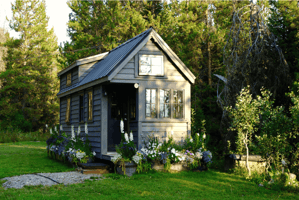Single-Family Housing
7 Rental Advantages for Single-Family Post COVID
Single-Family Housing
Owning a home is a dream for many people and perhaps one of the biggest financial investments. Even though many Americans desire to own a home, most of them still rent apartments. The recent outbreak of the COVID-19 pandemic led to an increased cost of houses in the United States. For example, a research finding published by Morris in 2021 noted that home prices rose a record high early in 2021. According to Morris, the least expensive houses increased by 16.5%, which is a high percentage considering the financial implications that were caused by the pandemic crisis. The housing market is booming, and house prices are skyrocketing at a higher rate, albeit the projection is expected to fade within a short period. The COVID-19 crisis points a grim picture on the cost of owning a home post-pandemic for a single-family household. However, choosing to rent instead of buying a house presents several advantages for an American single-family household.
Renting vs. Buying: Exploring the Financial Benefits for American Single-Family Households
Choosing to rent an apartment as a single-family household has several advantages. In real estate and property management, every decision has financial implications and far-reaching advantages and disadvantages. Notably, the property management and housing market are currently in an interesting position, partly due to the COVID-19 crisis. Rentals and house sales have been affected uniquely, necessitating the need to opt for the most feasible option, which is renting an apartment for a sizeable family. Therefore, there are several advantages if a single-family household chooses to rent an apartment over buying a house post-pandemic crisis.
1) Renting An Apartment would Eliminate Expenses Needed for Repair, House Maintenance, and Maintenance Cost
Renting an apartment would eliminate costs incurred during repair and maintenance. The cost for repairs and maintenance falls under the landlord’s responsibility or property managers in rental apartments. Usually, landlords cover all the costs related to keeping the surroundings tidy. Therefore, as a tenant, there is no need to worry about the cost of weeding, mowing lawns, and other critical repairs. Managing property is quite expensive due to the cost incurred during repair and maintenance costs (Weston, 2016). For example, the costs of fixing a damaged roof, painting walls, and repairing drainage can add up quickly. However, as a tenant, an individual does not need to worry about the cost of repairs and maintenance, they just submit a work order.
Conversely, choosing to buy a house would mean all repair and maintenance fall on you as the homeowner. As noted previously, repair and maintenance costs of a house/apartment are high in the United States. In this regard, being a homeowner would mean all responsibilities to repair and maintain the house fall on your shoulders. Even when appliances break or malfunction, the full responsibility to repair or purchase new belongs to the homeowner. However, as a tenant in a rented apartment, such responsibilities belong to the landlord. Also, it is imperative to note that house repair and maintenance take a lot of time, which can be limited due to work-related commitments. Thus, owning a house would mean being available during repairs to direct how they should be done based on your preferences and financial capability. Time is essential, especially in an American working culture where an individual can have one to three jobs in a single day. Thus, owning a home would mean some time off to oversee repairs and maintenance. However, there is plenty of time to do other activities deemed appropriate when you choose to rent an apartment. Therefore, renting an apartment is cost-effective and saves the time required to repair and maintain a house.
2) Renting an Apartment does not Require an Individual to Pay Real Estate Taxes or Homeowner Insurance Fees
Buying a house has additional financial obligations, such as taxes, which vary depending on the state and prevailing market value. In this regard, opting to buy a home as a single-family household would necessitate settling homeowner insurance and real estate taxes. Even though paying homeowners insurance is not mandated by the law, it is necessary to safeguard your property in the event of a fire, damage by adverse weather, or theft. As a result, buying a house would end up being expensive due to added homeowners insurance. Insurance is quite expensive in the United States, especially when the house is big. Conversely, real estate taxes, which are often state-based, are also expensive. In addition, real estate taxes are not rigid but rather vary according to the prevailing market value of the house. For instance, if market value increases, real estate taxes increase concurrently. Thus, buying a home would mean making more financial obligations such as paying taxes (Weston, 2016). However, renting an apartment does not necessarily require an individual to pay real estate taxes or homeowners insurance. Rented apartments are under the control and management of their owners/landlords. As a result, the responsibility to pay real estate taxes falls under the landlord. Even though, as a tenant, you may want to insure household items against theft and fire, the overall cost is less compared to the cost incurred in paying real estate taxes and homeowners insurance. Thus, renting an apartment as a single-family household is more advisable than buying a house.
3) Lower Utility Costs
The size of an apartment/house determines how much an individual will spend on gas, electricity, water, cooking needs, sewer, and heating purposes during winter. Heating needs tend to increase significantly during the winter. In this regard, the larger an apartment/house, the higher the cost of heating during winter. Utility costs tend to increase with the size of an apartment, whether rented or owned (Keenan, 2017). Unlike rented apartments, homes are generally bigger due to many rooms, open fields, swimming pools, and sewerage systems. Many rooms and recreation centers demand additional utility costs to maintain. As a result, even though a homeowner may not be paying rent, utility costs tend to be high. However, choosing to rent an apartment can help reduce utility costs. For example, the sewerage system is under the landlord. In addition, rented apartments tend to have few rooms compared to houses; hence the amount spent on water bills, electricity, gas, and heating purposes would be less than if an individual owned a home. Thus, renting an apartment is ideal for a single-family household that wants to save on electricity, water, sewage, and heating bills.
4) More Flexibility Concerning where to Live and Rent an Apartment
It is more flexible to rent an apartment than buying a house in the United States (Kolomatsky, 2021). Usually, those seeking to rent an apartment are not restricted on where to rent or live. In this regard, renting an apartment is ideal for a single-family household. Apartments for rentals are many in the United States; hence there are several varieties to choose from without feeling restricted and limited. However, there are a lot of limitations if an individual decides to buy a house. For example, an individual’s financial capability determines where they can live. From a general perspective, there is a sense of discrimination based on financial abilities regarding where an individual can live. Choosing to buy a house would mean limited options to choose from, unlike renting an apartment. Therefore, renting an apartment increases flexibility regarding where an individual can live and which apartment to rent. Humans are social beings and derive joy from interacting with other people. Since renting an apartment increases flexibility, an individual is more likely to attain a sense of fulfillment.
5) Renting an Apartment increases Flexibility to Downsize or Find a Bigger Place
Many Americans lost their jobs and livelihoods following the outbreak of the COVID-19 pandemic. The financial crisis created by the pandemic shed light on the potential implications if another infectious pandemic emerges in the future. Thus, renting an apartment would be more appropriate than owning a home. The future is unpredictable, and so is financial stability and job security. However, in the event of a financial crisis, it would be easier to downsize a rented apartment than changing an owned house. Even though it may seem unnecessary to downsize, this could be an important option to consider in the future. Conversely, it is also easy to upgrade from a rented apartment to another apartment more spacious and satisfying than the current. Unlike purchasing a house, renting an apartment creates the freedom to choose what to do regarding where to live (Kolomatsky, 2021). Therefore, a rented apartment is more ideal for a single-family household than buying a home.
6) Access to Crucial and Recreational Amenities
Competition for tenants is high in most rental facilities in the United States. In this regard, most rental apartments have luxurious services such as swimming pools and gym centers to attract tenants. The luxurious amenities are not chargeable since they are normally included in the rent or free of charge. However, homeowners have to part with a significant amount of money to equip their house with a fitness center or swimming pool. In addition, maintaining luxurious amenities is also expensive in the long run. Therefore, renting an apartment has the advantage of luxurious amenities at no extra expense. Also, subscribing to fitness centers can be quite expensive; hence living in an apartment with the amenities is a financial relief.
7) Renting an Apartment Creates the Right Environment to Bond with the Community and Neighbors
Social bonding is essential for overall psychological well-being and healthy relationships. Humans are social beings and often derive joy from interacting and socializing with other people. In this regard, any opportunity that promotes social interaction and connectedness would be beneficial. Most rental apartments have neighbors, private parks, or places where people can interact and share. Therefore, when opting to rent an apartment, the opportunity to engage with other people such as tenants and neighbors is always available. Children can also interact with other children, which is important for their cognitive development according to Kilewer from the Journal of Community Psychology. Also, the closeness of rental apartments creates a sense of community and belonging. However, buying a house often creates a sense of isolation from other people. For example, neighbors may be distantly apart, making bonding and socializing difficult. Thus, renting an apartment would allow interaction and socialization with neighbors, which is important for mental health.
Conclusion
Most Americans and corporate organizations are still reeling from the financial implications caused by the pandemic. Financial stability is emerging as an essential endeavor; hence, the ideal option is renting an apartment over buying a house for a single-family household. Choosing to rent an apartment is more cost-effective than purchasing a home. For example, there would be no financial obligations to make during repair and maintenance and paying rental taxes as a tenant. In addition, there is a lot of flexibility associated with renting an apartment instead of purchasing a house. For example, an individual can choose where to live without feeling limited and restricted. Notably, there is room to downsize or upgrade whenever there is a need. Thus, the ideal option is to rent an apartment post-COVID-19 pandemic as a single-family household.


